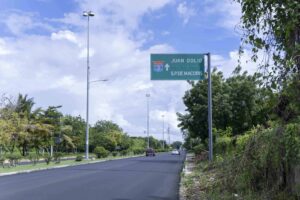
He world of soccer female under-17 is about to begin in the Dominican Republic with sixteen countries from all over the world present. Among them is Spaindescribed as one of the favorites and an international reference. His selector nationalKenio Gonzaloexplained to Diario Libre that the success of soccer in your country lies in a normalization and change of mentality on the part of the entire society and the support of the different institutions and sponsors. “It has been possible to develop and progress to the point of having some 40,000 federal license cards in Spain Right now we are at 118,000 licenses,” said the coach, analyzing the progress of the last seven years.
Kenya Gonzalo, in addition to selector of the under-17has the fundamental task of “finding and attracting talent in the geography of Spain and then train him to be able to reach different tournaments like the one in the Dominican Republic.” He has 30 years of experience in the sport and managed to lead Spain to conquer the last world of the category and was part of the coaching staff of the senior women’s team that won the world in 2023.
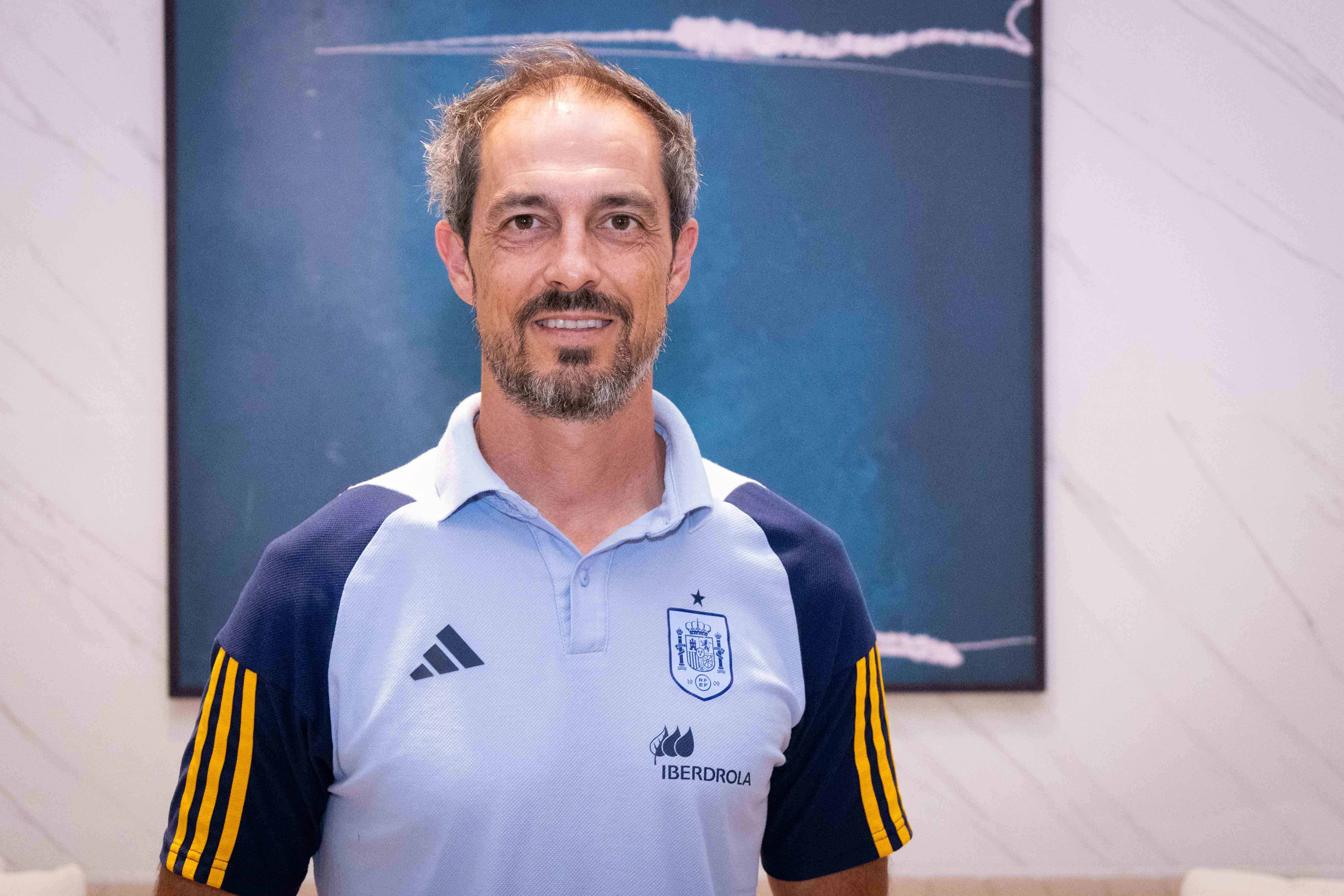
Based on his career, he assured that a tournament like this “always has to impact the society done has been done.” First at the level of infrastructure, as it provides them with bigger and better ones. But also, “it will make the athlete pay attention and say at home ‘hey, why not'” he explained. He selector He confessed that if they give it the right context, with a good image and good people to look out for, it could help a lot.
The importance of the under-17
Being the category prior to soccer professionalpreparation and education are important for both genders. Gonzalo highlighted that the players at that age, between 15 and 16 years old, “feel like soccer players and say ‘I can dedicate myself to this’, but it is a complicated age,” as he clarified that some have the desire to leave the sport. by other initiatives or interests that the society and life.
But, “if you give them a good context and they pass that stage, they begin to feel like footballers and responsible. I think it is a stage where they are sponges and need a lot of knowledge,” explained the selector.
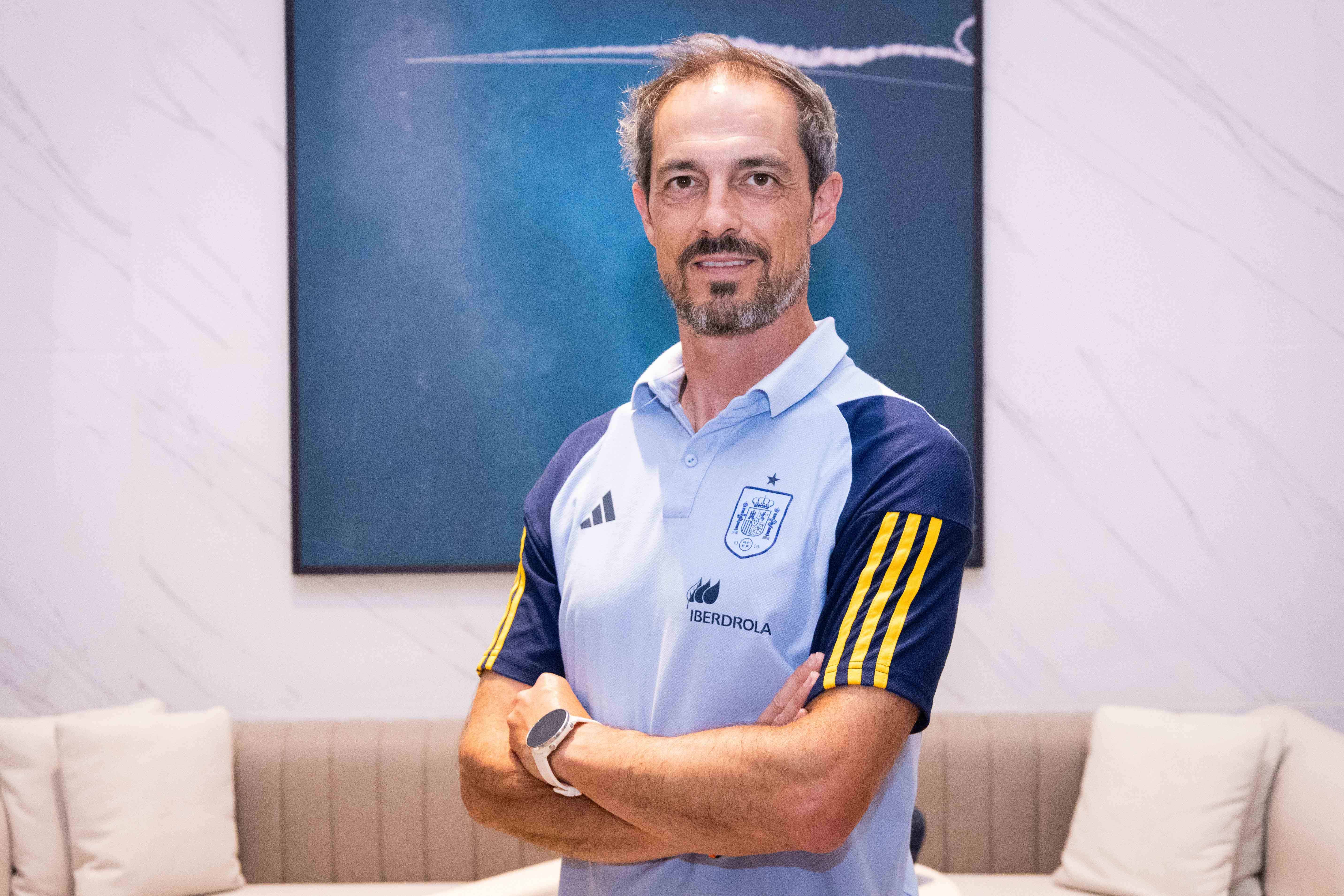
Differences with the soccer male?
I have been training for 30 years and my beginnings were in the soccer male and I have been in it for more than 12 years soccer female and the difference at the training level, no, it practically does not exist. I would say in lower categories. What I perceive is that women understand much more about soccer because he questions things more, he likes to ask more. So you like more to understand what the dynamics and practice of soccer. On a physical level, the difference is obvious, but on a technical-tactical level, no, there is not much and you will be able to see it these days in the World Cup as the players develop a very attractive and very adequate game.
How do the players see it?
Diario Libre had the opportunity to talk with Martina González and Elena Vázquez, two of the 21 players that make up the Spanish national team. soccer female under-17.
Martina González was born in Barcelona in 2007, she is a player for the Barcelona Football Club and her great references in the sport are Ona Batlle in the soccer female and Lionel Messi in the male. She, even so, confessed that her idol was her brother “my brother played and I wanted to do what he did”, and that is why she began her career as an athlete.
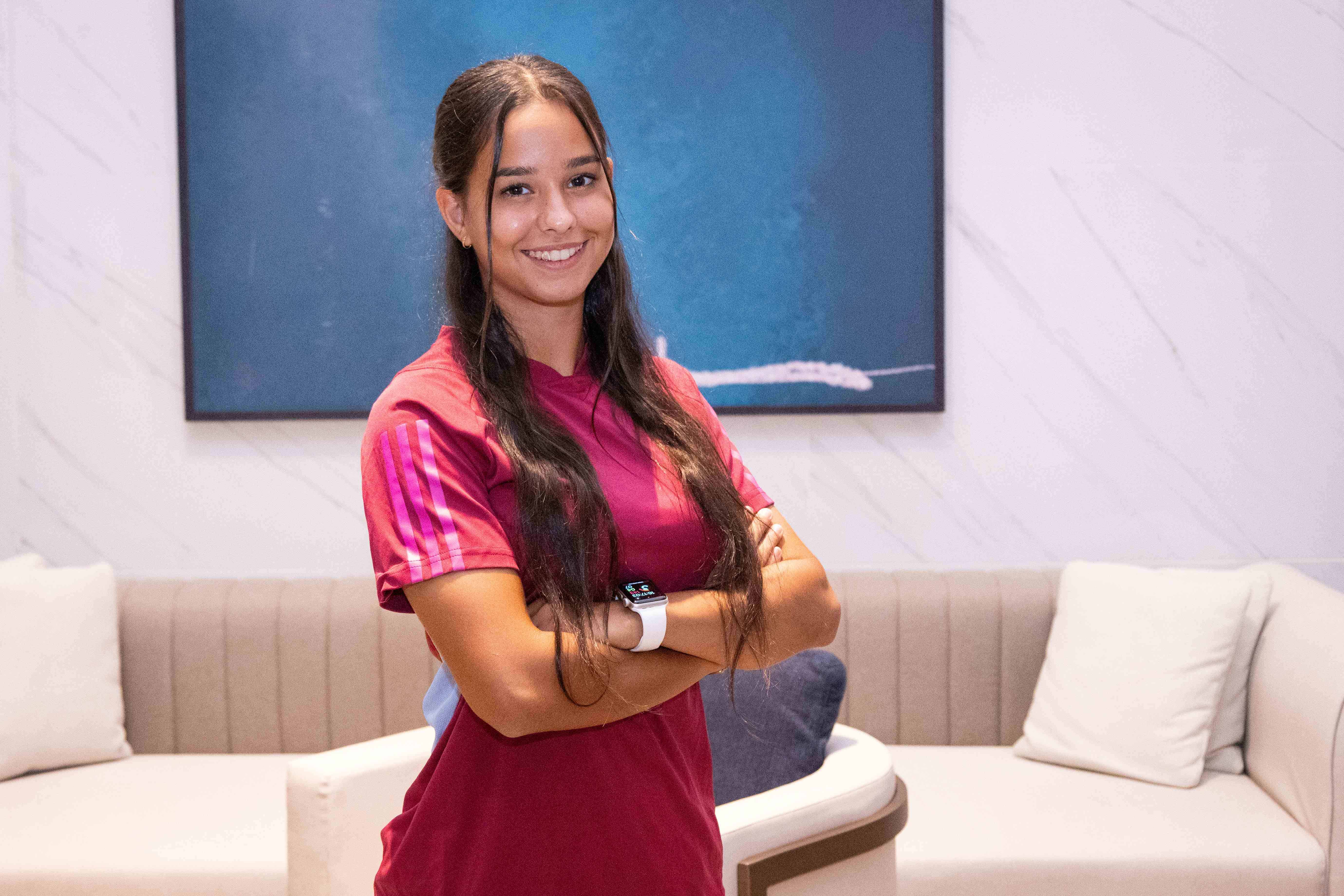
González explained that in the beginning she played with children, and for her, she stood out for being a girl. On the other hand, when Barça called him, he began to think that he could achieve something in this sport. “When I was little, whenever I wanted to play it was like ‘well, she’s a girl, she’ll be bad’ and sometimes they made comments to you, but I already knew what I wanted and I didn’t care. I assimilated it,” she confessed.
Elena Vázquez was also born in Galicia in 2007, she is a player for Deportivo Abanca and her great references in the sport are Mapi León in the soccer female and Lionel Messi in the male. She started playing when she was little, she took advantage of the fact that her older brother also trained and picked up a ball to play with him.
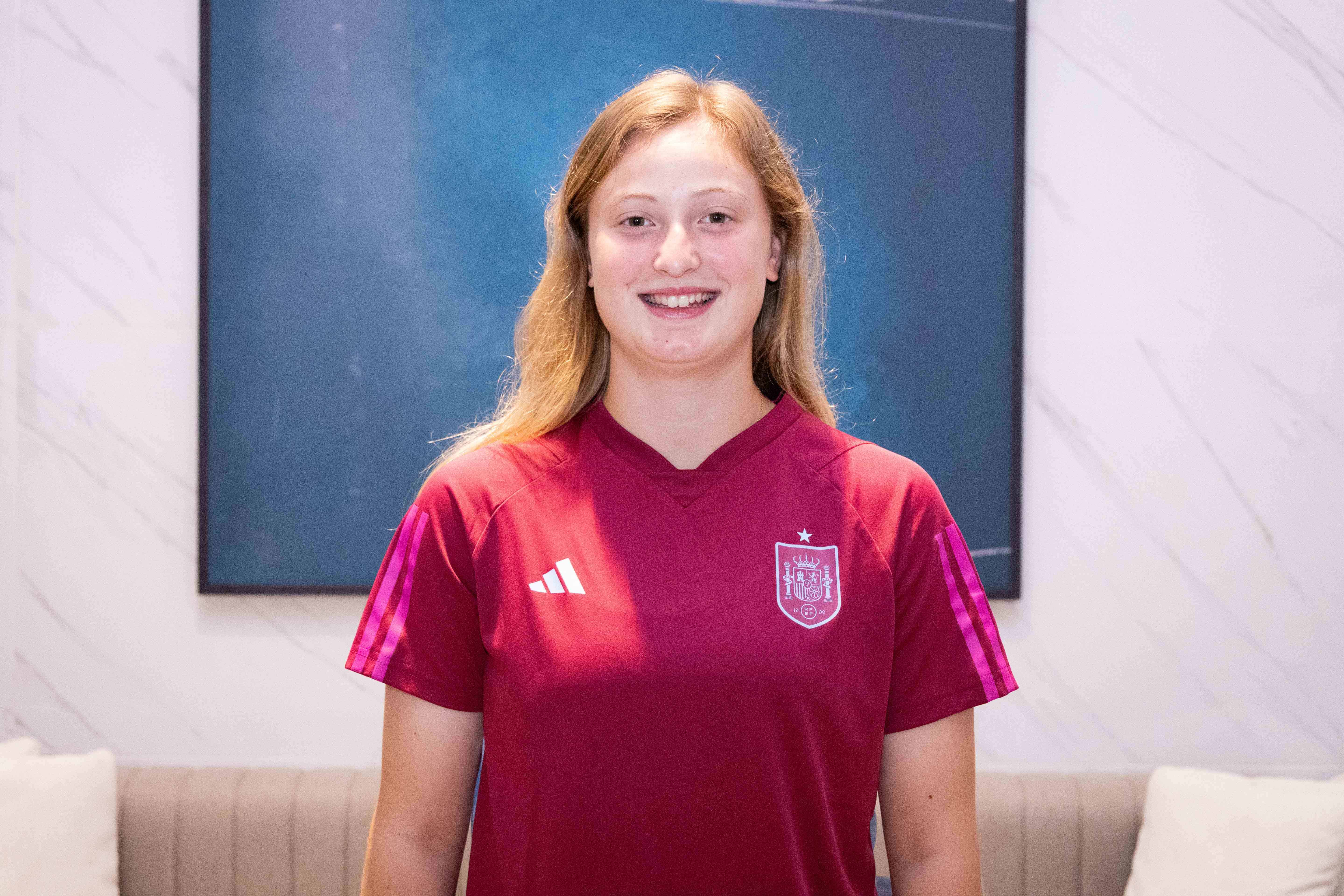
In his case, he described that “I started playing for my neighborhood team and, later, Deportivo Abanca was behind me. Now, I have been there for three years and one of the best youth teams in the country signed me.” Spain“. It should be noted that Vázquez became the youngest player to debut in an official match with Deportivo at just 15 years old.
Like González, the Galician player also explained that “when I was younger, people told me why I didn’t sign up for dance or something similar. I didn’t pay attention to them, I continued playing soccer with my colleagues.”
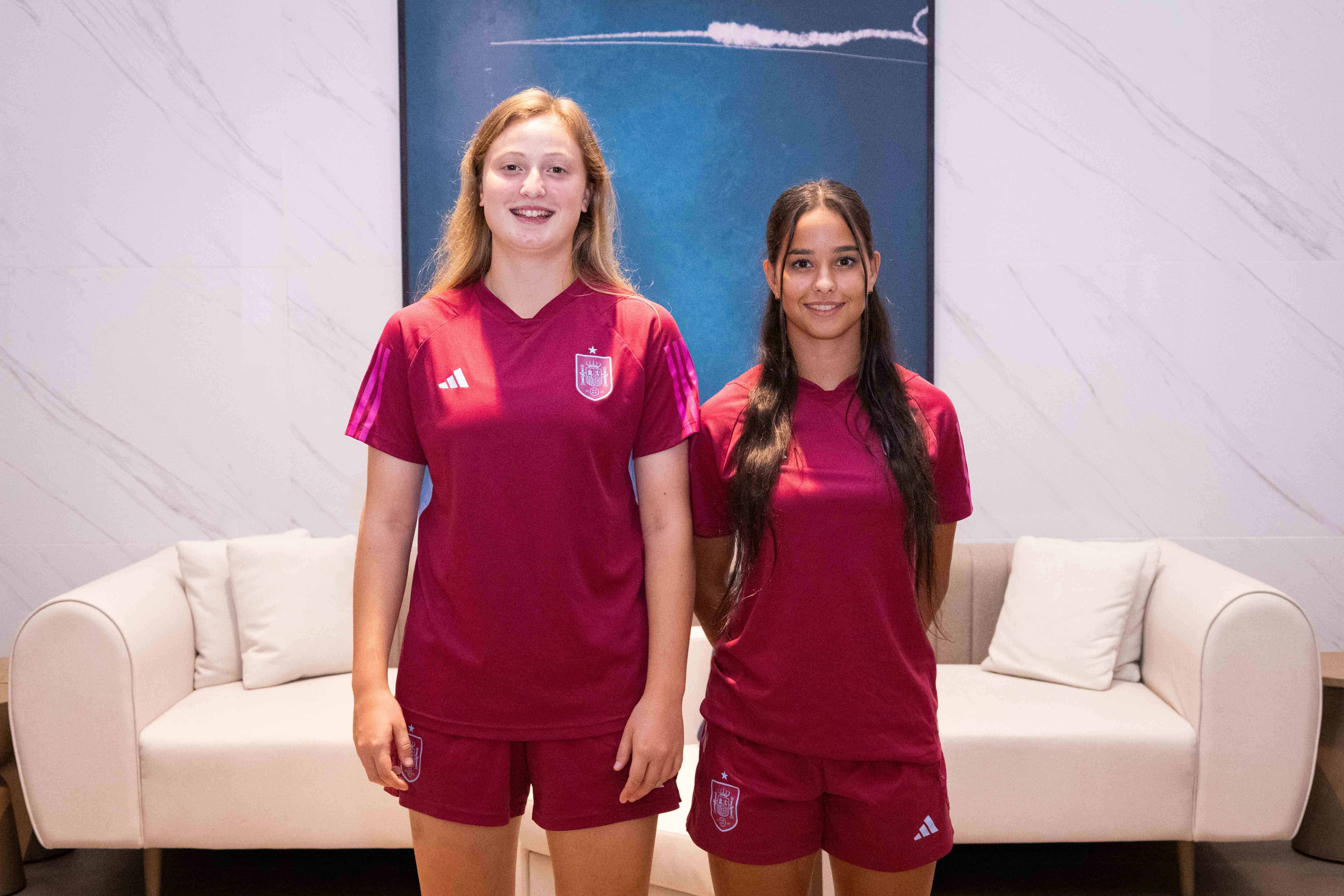
They both agree that the soccer female in Spain It is growing a lot due to the number of licenses and girls who play. “People realized that we can play and that there were girls with a level,” González interpreted.
That is why, in a joint message, the two players encouraged all Dominican girls to play soccer. “Don’t pay attention to people who tell you something, let them enjoy themselves to the fullest and have a good time,” Vázquez proclaimed. “If they like it, it doesn’t matter what people say. If it’s your dream, go ahead,” González said.
The two guaranteed that wearing the national team shirt and representing Spain in a world It is not a burden, but a feeling of pride.

